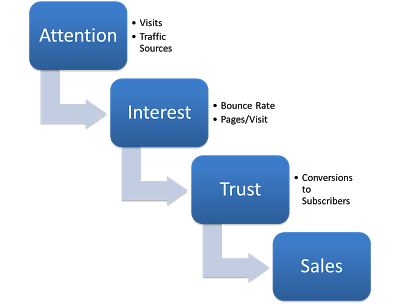The consumerization of healthcare isn’t a passing fad, according to PwC’s U.S. health industries leader, Kelly Barnes:
The consumerization of healthcare isn’t a passing fad, according to PwC’s U.S. health industries leader, Kelly Barnes:
“Healthcare organizations are increasingly operating in a world in which the voice of the consumer impacts the bottom line, and where customer experience is now a matter of dollars and cents.”
“As consumerism in healthcare gains steam, customer feedback has become a determining factor in the success of health organizations. Ratings connect consumers’ experience to quality, and quality connects to financial performance, market share and reputation.”
And if that doesn’t impress you, then this might:
68% of people who’ve read healthcare reviews use that information to select their next physician, hospital, health plan, pharmacy, and drug or medical device, according to a recent survey from PwC’s Health Research Institute.
The writing is on the wall. Patients can and will shop around when they have to use more of their own money to pay for healthcare, and there are better channels of communication and information available to make those decisions.
Which means the way you reach them, engage them, and retain them has to evolve as well.
But How Does This Affect Physicians?
Last year, a study in the Journal of Medical Internet Research surveyed 485 oncologists and primary care physicians.
60% of those physicians surveyed reported that social media improves the quality of patient care they deliver on a daily basis. It helps with receive new information, and engage with colleagues or patients.
One of the authors on that paper, Brian McGowan, also does a great job summarizing a few other key studies on his blog, #SocialQI.
So if:
- Technology and social media are playing a big role how patients choose new physicians
- This trend is legitimate and growing according to industry experts, and
- The majority of other physician’s surveyed rate social media as beneficial
Then… what are you waiting for?
There are a few common reasons (or excuses). And some are very real.
Take patient confidentiality for starters. A recent research paper from the American College of Physicians and the Federation of State Medical Boards identifies a few major points in regards to physicians using online media technology (that I’ve taken the liberty of summarizing for below):
- Be mindful of ethical principles in regards to confidentiality, privacy, respect
- Try to keep professional and personal social spheres separate
- Document patient communication and stick to email (when there’s consent)
- “Self-audit” your own online presence to make sure the information is factual and accurate
- Be aware that these online postings will be around a long time (and could have future implications)
All of these points are important to keep in mind. But they’re also pretty straight-forward and obvious.
Which could mean a lot of physicians hold back on using social media because they’re not sure where to get started, how it fits in their life, and they don’t understand the impact it has.
So here are three simple questions you can work through below, that will help you adopt new online media technologies into your daily routine and practices.
Question #1. Why Would You Use It?
Most lackluster social media results can be directly attributable to a disconnect between the (a) purpose and (b) execution.
If you can’t define success before you begin, then it will never make a positive dent in your daily routine (no matter how many times you update a Facebook page or send out a Tweet).
This simple decision affects everything else. For example, what platform should you choose to focus on? (Because in most cases, you can’t excel at all of them.) So do you want to…
- Stay informed and on top of the latest news? → Twitter
- Keep up with colleagues, associates and opportunities? → LinkedIn
- Engage with patients and provide support? → Facebook
- Increase your organization’s “reach” and “awareness”? → Yelp
Start here, and then you’ll have a framework for guiding the next few decisions.
Question #2. How Are You Going to Manage It?
Now that you know why, let’s talk about how.
What’s your role in the process? Are you going to be a hands-on patient advocate, or would you rather outsource and let someone else worry about it?
Doesn’t matter which one you choose — you just need to prepare accordingly. If you want to be heavily involved, then pick up some social media time hacks to speed up your productivity.
And if you want someone else to manage it, then what’s the relationship (e.g. a resident, independent vendor, etc.), and what are the checks and balances? A simple policy might help, but you’ll also need to think about your purpose (#1), and what are the concrete steps that will get you closer to achieving it.
Question #3. What’s the Feedback Loop?
If you (a) know the purpose behind an activity, and (b) can see who’s responsible, then you’ll know exactly how to measure the performance over time.
And you’ll be able to see how it contributes to your thought leadership, patient care, or the bottom line.
If your goal is thought leadership, then identify some simple simple actionable metrics, like articles published, interviews given, and new colleagues you’ve reached out to each month.
If you want to improve patient care, then how easily can they reach you, how often do you respond, which channels should you have a presence (like Yelp), and how many reviews per month can you incentivize?
And if you want to improve your bottom line, then you can even use an old copywriting framework — AIDA— which stands for:
- Attention
- Interest
- Desire (or trust)
- Action
Now plot a few simple metrics like so:

Link your activities to each of these stages, which will help you rationalize (or justify) the time, money and energy it takes.
But take caution with this approach, because unrealistic expectations can also be damaging to your progress.
A Caveat
Social media hasn’t changed communication or marketing — it’s just changed the delivery and distribution. So if you want social media to build your practice and improve your bottom line, then like most brand-building marketing activities, you can’t sell directly with it (at least, not all the time).
It’s hard to pinpoint a direct ROI like there is with direct mail or Google AdWords. And correlation doesn’t always equal causation.
So… how are you supposed to use social media to improve the bottom line?
Read our free ebook on social media and healthcare to find out now!







